
We pursue all these with the hope that they will make us happy. We somehow seem to have an idea that happiness is the goal of life and these are all the means. With this wrong assumption, seeing poverty, disease, failure, quarrels, war and suffering in the world, we ask the question, “Why is there so much sorrow in the world?” We even declare that if there is a God, He/She must be a very cruel person.
Vedanta declares that happiness is not the goal of life. Wisdom is the goal of life. Swami Vivekananda says, “Sense-happiness is not the goal of humanity. Wisdom (Jnana) is the goal of all life. We find that man enjoys his intellect more than an animal enjoys its senses; and we see that man enjoys his spiritual nature even more than his rational nature. So, the highest wisdom must be this spiritual knowledge. With this knowledge will come bliss. All these things of this world are but the shadows, the manifestations in the third or fourth degree of the real Knowledge and Bliss.”1 If we understand this, then everything in the world and our own life starts making sense. The dualities like success-failure, fame-disgrace, wealth-poverty, health-disease, and pleasure-pain, keep alternating. This whole scheme, when understood correctly, makes us wiser. Through this wisdom, we go beyond the dualities. The dualities no longer affect us. We are ever peaceful and blissful. This is the goal.
This story is from the {{IssueName}} edition of {{MagazineName}}.
Start your 7-day Magzter GOLD free trial to access thousands of curated premium stories, and 9,000+ magazines and newspapers.
Already a subscriber ? Sign In
This story is from the {{IssueName}} edition of {{MagazineName}}.
Start your 7-day Magzter GOLD free trial to access thousands of curated premium stories, and 9,000+ magazines and newspapers.
Already a subscriber? Sign In

Panchakroshi Parikrama of Varanasi
At the snow-capped Kailas, the Divine Lord Shiva was seated with Mother Parvati.
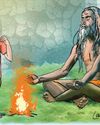
Gadai and the Monks
A fictional narrative based on incidents from the childhood of Sri Ramakrishna.

Chintayo momo maanosho Hori...
Sri Ramakrishna loved songs. There probably was no normal day when he did not sing some songs.
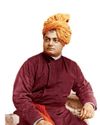
The Vedanta Vaccine
The world is still struggling under the impact of the pandemic due to Covid-19 for the last three years.
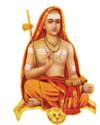
Chandrakirti's Chariot: Self in Madhyamaka Buddhism and Advaita Vedanta
The goal in Advaita Vedanta is the cessation of suffering and the attainment of true fulfillment. Suffering, according to this school, is due to ignorance of the true nature of the self and consequent erroneous identification with the body-mind.
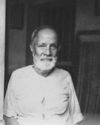
Reminiscences of Sargachhi
Question: यद्यदाचरतत श्रेष्ठसतत्तदरेवरेतरो जनिः। ‘Whatever a superior person does, others do the same thing!’ (Gita 3:21) – What does this statement mean?
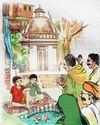
THE AUTUMN FESTIVAL
A fictional narrative based on incidents from the childhood of Sri Ramakrishna.
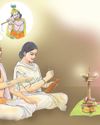
Bards of Guruvayur: Vilwamangalam II
Saints of India
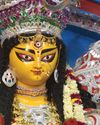
In the Universal Mother’s Divine Playground
Swami Vivekananda never taught the worship of Mother Kali. In a letter to Mary Hale he writes, “Kali worship is not a necessary step in any religion.
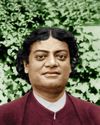
Swami Vivekananda: A Sportsman Par Excellence
In various books and articles, Swami Vivekananda has been called a spiritual leader, a prophet, a patriot, a social reformer, a philosopher, a yogi, a writer, an orator, an educationist, a musician, and so on.